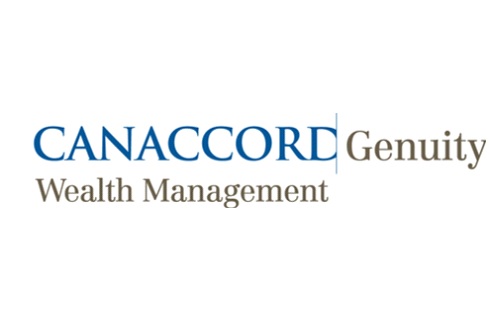This month:
Expert Investment Views:
The hunt for yield opens bond investors’ minds.
Geopolitical risk rears its head.
Very volatile trading conditions test strategies.
Equities still inspiring optimism.
Featuring this month’s experts:
1. Where to in the hunt for yield?
Insights from:

We have been asked by a number of clients in recent weeks what they should do if they are looking for some yielding assets outside of the traditional equity income options.
To find attractive levels of yield above say, short-dated gilts, you have to be prepared to take some sort of extra risk. Here are a few suggestions that could possibly be appropriate to different investors:
- Short-dated US treasuries have become more attractive following the rise in yields that we have seen recently, and you are not paid much extra to hold longer maturities as the yield curve is pretty flat. The additional risk you take on is that the US dollar weakens from here.
- Emerging market debt – yields are currently attractive along with good fundamentals, although they are overshadowed by the threat of further Trump protectionism and trade measures.
- UK investment grade spreads are abnormally wide compared to their global peers, but the extra risk you are assuming is that of a disorderly Brexit.
- A diversified portfolio of alternative investment trusts and REITs will produce an attractive and growing yield, but the risks they bring with them are of typically being perceived as sensitive to rising bond yields, and that the trusts are not the most liquid instruments in times of stress.
There are ways to diversify portfolios while generating income through a combination of the above, but all of the suggestions are not without risk!
There are ways to diversify portfolios while generating income through a combination of the above, but all of the suggestions are not without risk!

Caspar Rock
Chief Investment Officer at Cazenove Capital
2. Italy reminds investors about political risk
Insights from:

September was a month of two halves, with investors deciding that fears over Turkey had been taken far enough for now, but with concerns over Italy resurfacing towards the end of the month.
This nervousness was triggered by the new coalition government’s budget, effectively going back on Italy’s prior commitment to try to reduce government debt. Whilst their proposed budget deficit is still relatively small at 2.4% of GDP, it is a direct challenge to the European Union’s fiscal rules. The danger lies in that if Italy and the EU fail to find a workable compromise, we could be left with a rather precarious situation, potentially hugely disruptive to the bloc.
Any confrontation will put Italian banks back under pressure because they are seen as being implicitly backed by the Italian government in the wake of the financial crisis. The weakness of Italian government finances will therefore reverberate to the country’s banks. Recently though, investors have been adding to certain Italian businesses outside of the financial sector; mostly those which earn the majority of their profits overseas and which are less exposed to the domestic economy.
2018 is shaping up to be another bumper year for corporate profitability, and the outlook for 2019 also remains positive.
While political risk is likely to continue to dominate headlines for the foreseeable future, investors should focus on the strong underlying fundamentals for many companies. 2018 is shaping up to be another bumper year for corporate profitability, and the outlook for 2019 also remains positive. Global dividends are well covered by earnings and higher profits have in many cases been accompanied by share buybacks and a more disciplined approach to capital expenditure.
We remain broadly positive on equities, and believe investors can continue to benefit from an allocation to risk assets. Concurrently, we have some tactical positions in US government bonds and gold, chiefly to act as a hedge against any market volatility in the shorter term. Generally though, our attitude remains cautiously optimistic.

Richard Mitchell
Investment Manager at Quilter Cheviot
3. Choppy investment waters
Insights from:

September started with further escalation in the trade war as the US imposed further tariffs of 10% on $200bn of Chinese imports, set to rise to 25% in January. Although the largest so far in the current spate, markets were relatively sanguine about the move as some commentators had been expecting a harsher timetable.
Domestic markets continued to be dominated by Brexit news flow. The rejection of Theresa May’s “Chequers Deal” by Europe without explanation or counter-proposal risked pushing the UK towards a “no deal” scenario. This was tempered somewhat, however, by more positive noises from European negotiators who have repeatedly claimed they expect a deal to be concluded by the end of the year. Staying in Europe, the new Italian government agreed a budget deficit for 2019 at 2.4% of GDP – a figure far higher than expected by markets and which would flout European Union rules calling for Italy to progressively lower its deficit. Following the news, Italian yields were sharply higher with the 10-year above 3% whilst European equity markets were lower with the FTSE MIB at the centre of the storm.
September started with further escalation in the trade war as the US imposed further tariffs of 10% on $200bn of Chinese imports, set to rise to 25% in January.
As expected, the Federal Reserve increased interest rates in the US. The upbeat tone of the accompanying statement and the upward revisions to the Fed’s forecasts for economic growth support the view that they will continue raising interest rates once a quarter until mid-2019. With US 10-year yields once again passing the symbolic 3% mark, there was general nervousness in markets with both bonds and equities struggling in the latter part of the month (an environment similar to the beginning of the year). All in all, this made for very volatile trading conditions, particularly in currency markets.

Alex Brandreth
Deputy Chief Investment Officer at Brown Shipley
4. Resilience in uncertain times
Insights from:

Uncertainty, it would seem, is the order of the day. In the UK, we are no closer to knowing what Brexit will look like. And the ensuing political landscape? We haven’t a clue. On a global level, we have the leader of the modern world cosying up to Putin and Kim Jong-un, while at the same time picking fights with Canada and Mexico.
It’s the countdown to the US midterms in November and the US is also due to impose its second round of sanctions against Iran. While China is likely to ignore them and continue buying Iranian oil, Indian intentions are unclear. But all of this could be a side show to a trade spat between China and the US – Trump has threatened a ten-fold increase of tariffs on Chinese exports, taking them to $500 billion.
It’s impossible to predict anything in these unpredictable times. But when looking for investment opportunities, there’s a lot to be said about resilience
To mitigate for all of these risks when investing is impossible. But to try and find stocks that will be less affected than most, we’ve screened our Quest® (Canaccord Genuity’s proprietary equities tool) UK universe of 800 stocks for companies that aren’t overly reliant on global trade, don’t have more than 20% of total revenue coming from the UK, aren’t reliant on a strong UK economy and wouldn’t suffer in the event of a ‘hard Brexit’. And we’ve screened for stocks that rank below average for risk, using our proprietary Quest® Risk Rater. This returns a list of 16 stocks: Unilever, Diageo, Carnival, Compass, Imperial Brands, CRH, RELX, Experian, WPP, Ferguson, Smith & Nephew, Ashtead Group, Informa, Coca Cola, Burberry, 3i Group, Intertek and NMC Health.
It’s impossible to predict anything in these unpredictable times. But when looking for investment opportunities, there’s a lot to be said about resilience.

Simon McGarry
Senior Equity Analyst at Canaccord Genuity Wealth Management
5. The problem with daily liquidity
Insights from:

We have come across quite a few investors who will only invest in strategies that offer daily liquidity, preferably in UCITS vehicles. The reason being, that the ability to exit whenever they want equates to lower risk.
But is this really true? Of course not, and I would argue that particularly for a pension fund, insurance company or family office with a long-term investment horizon, to restrict yourself in such a way is highly inefficient.
For one, liquidity is surely a risk factor, but it definitely isn’t the only one. For example, I could be holding cryptocurrencies, high yield bonds or penny stocks for that matter, and although very liquid, the risk would be much higher than a long-term, senior-secured lending strategy, for example.
I could be holding cryptocurrencies, high yield bonds or penny stocks for that matter, and although very liquid, the risk would be much higher than a long-term, senior-secured lending strategy.
Two, you are missing out on getting rewarded for illiquidity and depending on how long you choose to tie up your capital, the premium can be as high as 5% per year. Compounded over time, that is a huge opportunity cost in missed performance.
Three, by only holding liquid investments, it restricts your investment universe to so-called “plain-vanilla” strategies, as most alternative strategies simply can’t be executed effectively in a UCITS structure (given all the restrictions). As such, one would be missing out on much needed diversification in a market environment where public bond and stock markets are at a historic high.
But by far, the most important reason why you should never only hold liquid instruments is, no one in their right mind would actually ever choose to sell their entire portfolio in one day. Because that would mean, you either panicked or you were trying to time the market – and we certainly wouldn’t advise doing that, particularly for long-term investors.

Christian Armbruester
Chief Investment Officer at Blu Family Office
6. All eyes on the EU
Insights from:

As the Brexit deadline draws ever closer, conversation in the UK has been increasingly dominated by politics. And, now, fresh from party conference season, the Prime Minister and her government’s focus must return to the plans for the country’s departure from the EU. The next looming “deadline” is the upcoming October Council meeting, and the EU is demanding progress be made.
The mood seems to have lifted a little, but that is no guarantee that we will see progress, as both sides still don’t see eye to eye on the key issue of the Northern Ireland backstop. However, our base case remains that a settlement on the Withdrawal Agreement can, and will, be reached eventually. As we head into the concluding phase of negotiations, it is worth stepping back from the day to day wrangling to consider the impact of Brexit on the UK economy over the long term.
The economy continues to weather the uncertainty, and, under our base case, we expect it to maintain its current sluggish pace of growth. On the other hand, our risk case of the discussions falling through and the UK leaving with no deal in place paints a more negative picture of the UK’s growth prospects.
While in the base case we ultimately expect an exit agreement with the EU, the path to it will be tough and, until this difficulty has passed, the pressure on the pound is unlikely to abate
The short-term impact of a no deal scenario is difficult to estimate as there are likely to be a few moving parts to consider. If this was to transpire, it is likely that the hit to the economy will be substantial until other factors can adjust. That said, in time, the situation, helped by a number of natural stabilizers, should see growth return to some semblance of normality before too long.
When it comes to markets, the pound has continued its roller-coaster ride in response to the slightest piece of Brexit-related news. Given the resilience of the economy, in the case of a no deal outcome we expect the pound to act as a decent shock absorber for the economy, as has been the case historically.
So, while in the base case we ultimately expect an exit agreement with the EU, the path to it will be tough and, until this difficulty has passed, the pressure on the pound is unlikely to abate.

Dean Turner
Economist at UBS Wealth Management
7. Be diversified and flexible
Insights from:

2018 has been an extraordinary year for the global economy, the political world and for financial markets. There are some important changes taking place in the global financial system and some major fiscal and monetary actions being undertaken that will have consequences for us all in the coming decades. From a political standpoint we appear to be witnessing the very fabric of the accepted political order of the post-World War II era being ripped up and replaced by a new world dynamic.
In financial markets the action has been no less “exciting”, even if the healthy returns and low volatility environment that we enjoyed through the second half of 2016 and 2017 now appears to be over. In addition, great divergences have arisen across financial markets that should create opportunities for investors in the long term, even if our core view is that risks have risen in financial markets over the last six months and we are now less comfortable taking risk than we have been for some time.
There are some important changes taking place in the global financial system and some major fiscal and monetary actions being undertaken that will have consequences for us all in the coming decades.
With so many significant political events creating uncertainty at a time when economic and market risks have risen, we have actively reduced risk across our investment strategies over the last year. At the same time, we have been very selective about our chosen investments, both in the UK and overseas. The time to be become very defensive in our investment strategies for the first time in 10 years is coming. Whilst we do not believe that we are at that inflection point yet and, to be clear, we are not suggesting that great investment opportunities do not exist, we are respectful of the changes taking place and the fact that political, economic and financial market risks have risen; this is reflected in our ongoing diversified and flexible investment approach.

Thomas Becket
Chief Investment Officer at Psigma Investment Management
Important information
The investment strategy explanations contained in this piece are for informational purposes only, represent the views of individual institutions, and are not intended in any way as financial or investment advice. Any comment on specific securities should not be interpreted as investment research or advice, solicitation or recommendations to buy or sell a particular security.
We always advise consultation with a professional before making any investment decisions.
Always remember that investing involves risk and the value of investments may fall as well as rise. Past performance should not be seen as a guarantee of future returns.

